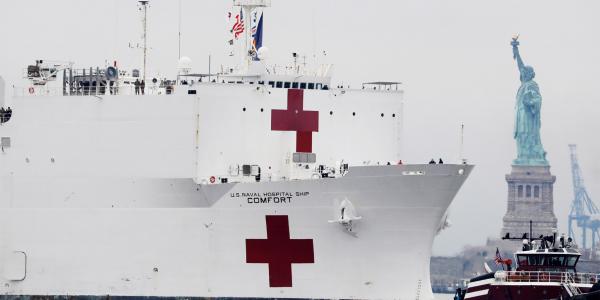Business Interruption Losses Due to COVID-19
With the closing of many businesses or the curtailing of operations of many others as a result of the COVID-19 pandemic, issues have arisen regarding whether insurance policies afford coverage for the resulting business income losses. As with any coverage issue, individual policies must be reviewed for all relevant terms (insuring agreements, exclusions, conditions, definitions, and endorsements) and general summaries of typical policy provisions are no substitute for a proper analysis of a particular policy issued to an insured. With that caveat in mind, we shall consider the terms of typical business property insurance policies in light of the current situation. In particular, we shall consider the Business Income (And Extra Expense) Coverage Form (CP 00 30 04 02) and the Businessowners’ Coverage Form (BOP 00 03 07 13).
Business Income and Extra Expense Coverage Under the BOP
Absent any applicable endorsement, the BOP provides four types of business income and extra expense coverage when an insured business is unable to operate in its usual manner. First, coverage may be afforded when the insured’s operations are suspended due to the direct physical loss or damage to property at the insured location caused by a covered cause of loss. Second, this coverage may apply when a “civil authority” prohibits access to the insured’s premises because of damage to nearby property caused by a covered cause of loss. Third, coverage may be afforded when the insured has a loss because of damage to the property of another business that delivers materials or services to the insured, accepts the insured’s products, manufactures the insured’s products or attracts customers for the insured. This “dependent property” coverage also requires that the other business’ property must have been damaged by a covered cause of loss. Finally, and not relevant in the present circumstances, business interruption coverage may be available when there has been an interruption in computer operations due to destruction or corruption of electronic data due to a covered cause of loss.
These coverages have two common threads: there must be some physical damage to property and those damages must be caused by a covered cause of loss. These two threads are also present in the BOP’s general insuring agreement, which provides that the insurer “will pay for direct physical loss of or damage to Covered Property at the premises described in the Declarations caused by or resulting from any Covered Cause of Loss.” Covered Causes of Loss are defined as “direct physical loss unless the loss is excluded or limited.”
Among the policy’s exclusions, three seem particularly relevant. Exclusion (1)(j) precludes coverage for “any virus, bacterium or other microorganism that induces or is capable of inducing physical distress, illness or disease” (with an exception for fungi, wet rot and dry rot, which losses are addressed elsewhere). Exclusion (2)(b) applies to claims resulting from “delay, loss of use or loss of market.” Exclusion (3)(b) applies to “acts or decisions, including the failure to act or decide, of any person, group, organization or governmental body.” Unlike the other two exclusions, if a covered cause of loss results from such acts or decisions, the loss or damage caused by that covered cause of loss is covered.
Business Income and Extra Expense Coverage Under CP 00 30
The CP 00 30 provides similar business income coverage. Specifically, such coverage applies when an insured suffers loss due to the necessary suspension of its operations. The suspension must be caused by direct physical loss of or damage to property at the insured premises and caused by or result from a covered cause of loss. The CP 00 30 also provides “civil authority” coverage when a civil authority has prohibited access to the insured premises due to direct physical loss of or damage to property, other than at the insured premises, caused by or resulting from any covered cause of loss. These terms are comparable to the BOP. (Endorsements may grant additional business income coverage, such as CP 15 45, which applies when there has been an interruption in utility services.)
To determine whether there has been a covered cause of loss, a separate form (CP 10 30) must be reviewed. Pursuant to this form, the term “covered causes of loss” is defined to mean risks of direct physical loss unless excluded or limited. Exclusion 2(b) of this form applies to loss or damage due to delay, loss of use, or loss of market. Exclusion 3(b) applies to acts or decisions of any person, group, organization, or governmental body. In addition, endorsements should be reviewed, such as the Exclusion of Loss due to Virus or Bacteria (CP 01 40) or Spoilage Coverage (CP 04 40).
Accordingly, the same issues arise under the CP policies as under the BOP: (1) has there been direct physical loss of or damage to property; (2) is the loss excluded on the grounds that the harm is due to a loss of market, or the acts or decisions of a governmental body and not within the “civil authority” coverage; and (3) does the policy have exclusions for losses due to a virus or some other potentially relevant risk.
While the recovery of benefits under the terms of private insurance policies is being pursued and/or challenged, various state governments have been considering bills which would require insurers to pay these claims and be reimbursed by the government. Thus, losses and claims-related materials should be collected and maintained even if a private insurer denies or disputes coverage in a particular case. Such information could be necessary if the government decides to pay for such losses, if the insurers do not.
Photo Credit: https://tinyurl.com/t6cp697




